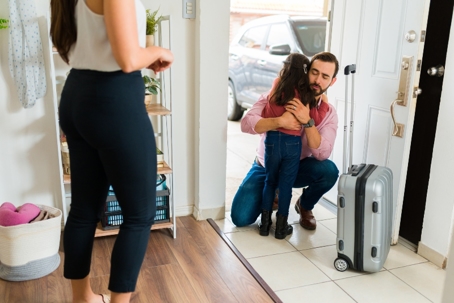Divorce can leave children feeling helpless. Everything in their lives is changing. They have little say in the big changes being made, and they often don't have the coping skills to deal with them, especially when it comes to visitation schedules. Fear, anger, and resentment could make them not want to spend any time with their non-custodial parent. In this instance, the custodial parent must find out why the child doesn't want to see the other parent and fix the situation as positively as possible. Here are a few suggestions that may help.
- Talk to your child – Take some time to listen to your child calmly, giving him or her your full attention. Let them know you do care about their feelings on the matter. Sometimes all they want is to vent.
- Find out what is causing the problem – The child might be upset because the other parent lives so far away they won't be able to family and friends, causing them to miss out on fun activities, especially during the summer months. It could be they don't like the rules they must follow at the other parent's house, or even that the parent has entered into a new relationship in which the new partner, and maybe their children, also live in the home.
- Make sure your child is safe – Sometimes a child's reasons for not wanting to visit the other parent are more serious. That parent could be exposing the child to drugs, alcohol, or other dangerous situations. If this is the case, contact your attorney immediately. They will begin an investigation, taking legal steps toward ensuring your child's safety.
- Involve the other parent – Once you've uncovered the problem, explain the situation openly with the other parent without placing any blame and try to work together to find a solution. Maybe the other parent can talk to the child on the phone or a video chat, giving them a chance to discuss their feelings before the visit begins. If necessary, mediation or family therapy might help.
- Stay positive – Many children feel as if they are deserting one parent when they spend time with the other, or they feel guilty for having fun with one parent while the other is home alone. Ease their fears. Tell them you love them, but their other parent loves them, too, and really wants to spend time with them and you want your child to have a great time! Assure them you have things to do and won't be lonely, but you'll be there waiting when they get back.
It is true that both parents are legally responsible for upholding the court ordered visitation agreement. However, helping the child have a loving, healthy relationship with both parents should be the top priority during these childhood years. Doing this will help your child have a relationship with both parents that can withstand the drama of your divorce.

